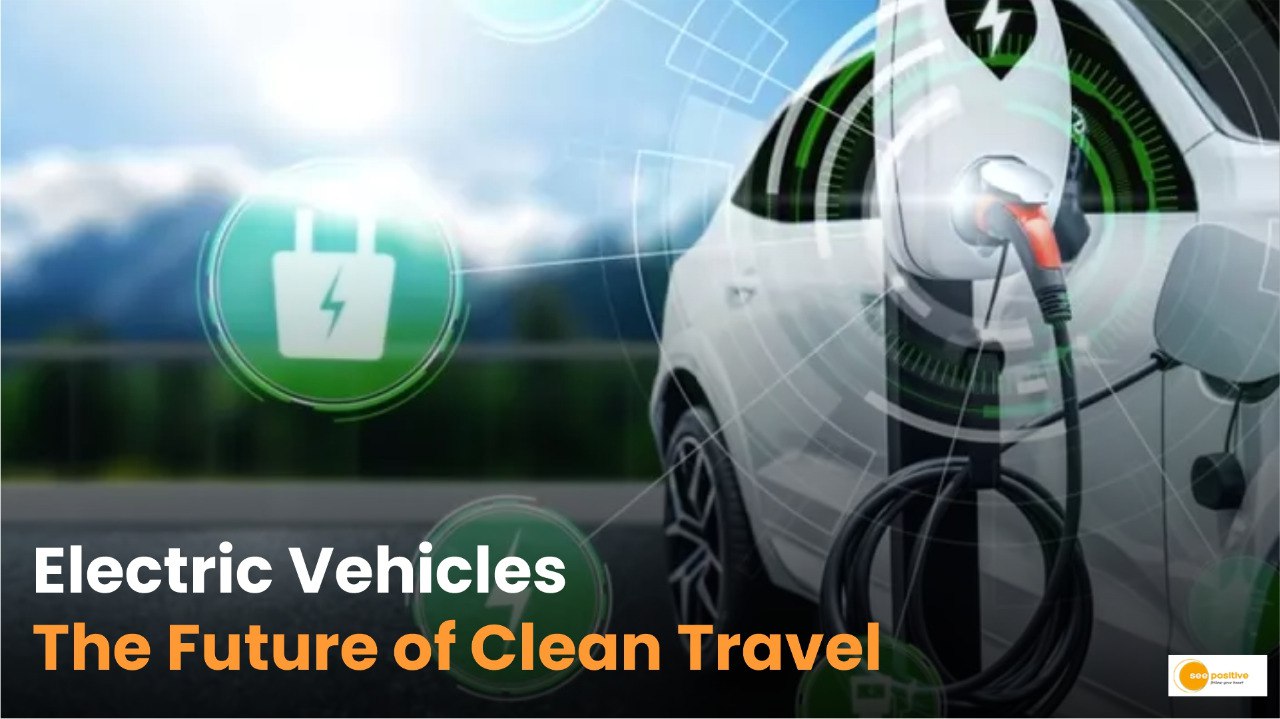Electric Vehicles: Electric Vehicles (EVs) are transforming the way we think about transportation. With growing concerns about pollution and climate change, EVs offer a cleaner, greener alternative to traditional gasoline-powered vehicles. In this article, we will look at what electric vehicles are, why they matter, and how they could help shape the future of sustainable transport.
What Are Electric Vehicles Work?
EVs are powered by electricity instead of gasoline or diesel and include cars, buses, bikes, and even trucks. Unlike traditional vehicles that rely on internal combustion engines, EVs use batteries to store electricity, which powers an electric motor. Since EVs do not burn fuel, they produce zero emissions, making them a more environmentally friendly option for transport.
Key Benefits of Electric Vehicles
Electric vehicles are important for several reasons. One of the main benefits of EVs is that they help reduce air pollution. Gasoline vehicles release carbon dioxide (CO2) and other harmful gases that contribute to global warming and air pollution. By producing zero tailpipe emissions, EVs can help keep the air cleaner. Another major benefit is lower fuel costs, as electricity is often cheaper than gasoline, saving EV owners money on fuel. EVs also reduce the need for fossil fuels, helping to decrease our dependence on limited resources like oil and coal.
How Do Electric Vehicles Store Energy?
Electric vehicles work by using rechargeable batteries similar to those found in cell phones but on a much larger scale. These batteries store the electricity that powers the motor to move the vehicle. When the battery runs low, it can be recharged by plugging the vehicle into an electrical outlet at home, work, or a public charging station. There are different types of EVs, including Battery Electric Vehicles (BEVs) that run entirely on electricity and Plug-in Hybrid Electric Vehicles (PHEVs), which use both a battery and a small gasoline engine. PHEVs can run on electricity alone for a certain distance before switching to gasoline if needed.
Benefits of EVs
EVs offer many advantages for sustainable transportation. They help reduce greenhouse gas emissions, which is essential in the fight against climate change. EVs can improve public health by lowering air pollution and promoting energy-efficient technologies. As a result, they encourage a shift toward cleaner, renewable energy sources, making EVs a smart choice for a sustainable future.
Challenges Facing Electric Vehicles
However, there are some challenges to overcome with EV adoption. Battery costs are still high, and some EVs have a limited range, though battery technology is advancing quickly. With improvements, batteries are becoming more affordable, and EVs can now travel longer distances on a single charge. Another challenge is charging infrastructure, as EV charging stations are not as widely available as gas stations. Governments and companies are working to build more charging stations, especially in urban areas and along highways, to make EV charging more convenient.
Why EVs Matter for a Sustainable World
In conclusion, electric vehicles represent a powerful solution to many environmental issues. By reducing emissions, lowering fuel costs, and promoting renewable energy, EVs are an essential part of the transition toward sustainable transportation. While there are still some challenges, advancements in EV technology are paving the way for a more eco-friendly future. Choosing an electric vehicle today not only benefits the environment but also offers a way to save on fuel costs and reduce our overall carbon footprint.


